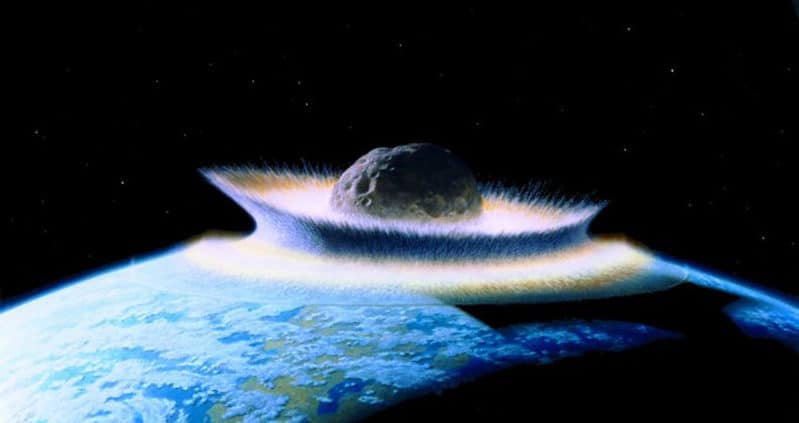
Ignore the above picture. And try not to worry about the skyscraper-sized asteroid that is currently hurtling towards Earth at over 100,000 kilometres an hour.
As noted by The Washington Post, although British tabloids have been indulging in a little fear-mongering, NASA says we have nothing to worry about.
The Daily Mail and The Sun have run stories accompanied by graphics that will make you spit out your Weetbix and head for the nearest underground shelter.
When reporting on asteroids, prepositions are everything.
Even though The Daily Mail and The Sun both concede that the asteroid will whiz past Earth, the graphics appear as if a direct impact is likely.
“In the ‘worst case scenario’, soot would remain in the atmosphere for around 10 years, while dust take [sic] six years to settle back on Earth,” Phoebe Weston wrote for The Daily Mail.
But according to science, there is a zero per cent chance of this “worst case scenario” happening.
With the public getting nervous and news stories showing asteroids about to hit or hitting Earth, NASA decided put all the fears to rest.
Asteroid Watch, the Twitter account for NASA’s Center for Near Earth Object Studies, tweeted a video showing the asteroid’s trajectory.
“Asteroid 2002 AJ129 will safely pass Earth on Feb 4”, NASA wrote.
It’ll come “close” to us, which is a relative term when dealing with the immense vastness of space. In this case, close is 4.2 million kilometers away. For perspective, the Moon is almost 400,000 kilometres away. Go another 54 million or so kilometres and you’ll get to Mars.
Not everyone was convinced by the tweet, with Twitter users voicing various concerns. Fortunately, NASA had an answer for everything and since they seem to be pretty good at this space stuff, we should probably (hopefully?) trust them.






Still worried? Manager of NASA’s Center for Near-Earth Object Studies Paul Chodas might make you feel better.
“We have been tracking this asteroid for over 14 years and know its orbit very accurately,” he said. “Our calculations indicate that asteroid 2002 AJ129 has no chance – zero – of colliding with Earth on Feb. 4 or any time over the next 100 years.”
